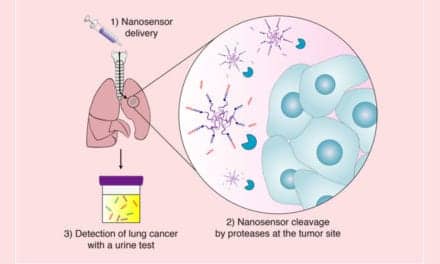Exai Bio has presented new data demonstrating that its novel RNA- and AI-based platform detected non-small cell lung cancer with high accuracy, at the earliest stages and for the smallest tumors, in both training and validation cohorts. In the independent validation cohort, stage I sensitivity was 96% and tumor size T1a-b sensitivity was 94%, at 90% specificity. These findings continue to highlight the power of Exai’s proprietary technology to detect cancer at its earliest stages from a blood draw. This study was presented at the American Association for Cancer Research (AACR) 2023 annual meeting.
“These results demonstrate the unique advantages of our RNA-based liquid biopsy platform in early detection,” says Patrick Arensdorf, chief executive officer of Exai. “We set the bar high in this study, emphasizing small and early stage tumors, in order to address head-on the unmet need for earlier lung cancer detection. Exai’s platform reveals actionable insights into novel cancer biology in order to achieve our ultimate goal of improving patient outcomes.”
The non-small cell lung cancer results presented at AACR expand a growing body of evidence that Exai’s platform can be used across multiple tumor types and clinical applications, using standard blood samples, according to the company. Previously, Exai has presented breast cancer early detection and screening data at the San Antonio Breast Cancer Symposium (SABCS) 2022, monitoring and molecular residual disease detection data in breast cancer at SABCS 2021, and colorectal cancer early detection and screening data at the 2022 European Society for Medical Oncology (ESMO) meeting.
Exai’s platform uses RNA sequencing to identify a novel category of cancer-associated, small non-coding RNAs, termed orphan non-coding RNAs (oncRNAs). OncRNAs are actively secreted from living cancer cells and are stable and abundant in the blood of cancer patients. Exai has created a catalog of hundreds of thousands of oncRNAs and thousands of patient oncRNA profiles, spanning all major cancer types. When combined with Exai’s proprietary artificial intelligence, this unique platform has several scientific and practical advantages over tests that focus on circulating tumor DNA including sensitivity, specificity and informative properties for active cancer biology. Exai’s universal platform can be used across multiple cancer care settings such as screening and early detection, monitoring, molecular residual disease and therapy selection.





